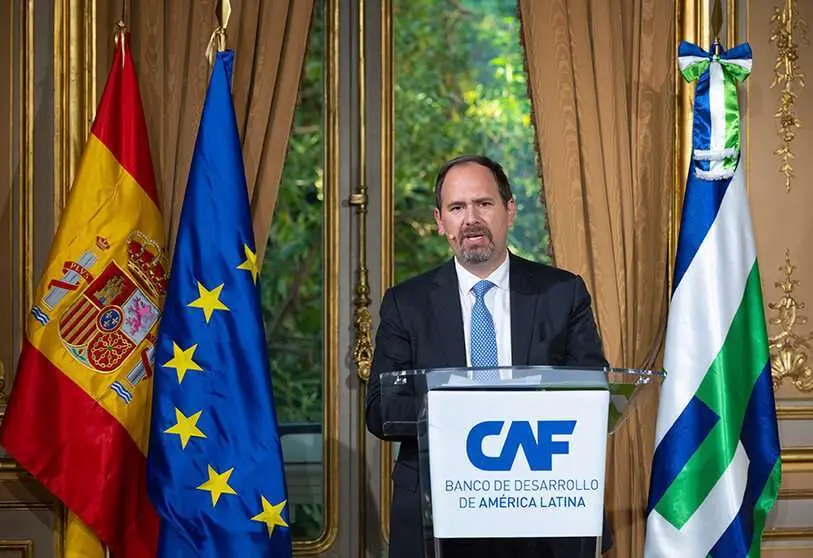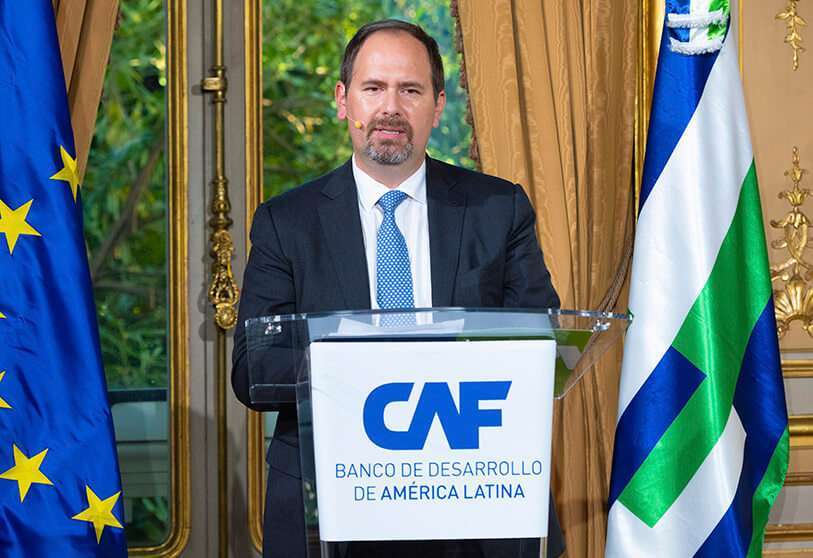In five years, CAF will be the "green bank" of Latin America and the Caribbean

In an interview during the UN climate summit COP26, which has been held in Glasgow (UK), Suárez explained that this goal is proposed "in the context of a change in the management of CAF", after Sergio Díaz-Granados took over as the new executive president on 1 September.
Díaz-Granados "is particularly involved in the climate agenda, given that his origins - he is from the Colombian Caribbean - have given him first-hand knowledge of its vicissitudes in the past", the vice-president said.
In its ecological transition, the entity is preparing to "be very close" to its shareholder countries - 17 in Latin America and the Caribbean plus Spain and Portugal - "accompanying them in their climate and environmental agendas", specifically in the fulfilment of their carbon emissions reduction programmes, he said.
In figures, Suárez said, the bank "will directly finance around 25 billion dollars (some 21.6 billion euros) over the next five years in favour of the climate and environmental agendas", understanding the link between "mitigation and adaptation to climate change with positive biodiversity".
This direct financing means that at least 40% of CAF's total new financing approvals by 2026 "will incorporate environmental and climate benefits according to a commonly defined international taxonomy", up from 26% in 2020, he said.
The vice president said that the type of projects that will be financed based on the green agenda are, for example, programmes to decarbonise public transport, introducing electric vehicles as far as possible, or to bring "decent water and sanitation" to communities that are still undersupplied.

The bank, he added, is also working to become "a strategic and reliable platform to make it possible for international cooperation, including that which developing economies have committed to in the framework of the COP, to land in favour of climate agendas, especially climate adaptation, in Latin America and the Caribbean".
"We are proposing that in the next five years at least 1.5 billion dollars (1.3 billion euros) from the three UN environment and climate mechanisms on concessional terms can reach the region through CAF as a direct access implementing agency," he said.
Suárez pointed out that COP26 was "an unparalleled opportunity" for developed countries to reach the goal promised in 2009 of contributing at least 100 billion dollars (86.7 billion euros) annually to help developing countries mitigate and adapt to the ravages of climate change.
Moreover, the vice-president assured that CAF has been "carbon neutral" since its inception in 1970 and revealed that this week it registered the carbon credits acquired to offset its 2020 institutional carbon footprint, in this case from a programme that protects 710,000 hectares of native tropical forest in Colombia.








